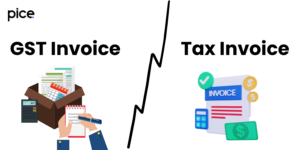Powers and Functions of GST Council
- 12 Sep 24
- 9 mins

Powers and Functions of GST Council
Key Takeaways
- The GST Council is a key decision-making body that oversees and amends GST laws in India, led by the Union Finance Minister.
- It determines GST rates, tax exemptions, compliance rules, and addresses issues like tax evasion and inter-state disputes.
- Formed under Article 279A of the Constitution, the Council includes members from both central and state governments to ensure cooperative governance.
- The Council monitors GST compliance and suggests measures to improve adherence across industries, ensuring smooth tax administration.
- It plays a crucial role in managing India's unified tax system, including subsuming existing taxes and setting special rates for emergencies.
Why Is a GST Council Necessary?
The GST Council is an apex decision-making body that enforces, reconciles and amends laws and regulations and makes major decisions pertaining to goods and services tax in India. The Union Finance Minister heads the committee with assistance from state finance ministers. Thus, the council is the governing and key decision-making body responsible for GST implementation in India.
This committee decides the principles of levy, tax rates, tax exemptions, GST annual return filing process, due dates, tax laws and compliance deadlines. The committee also decides special provisions for specific Indian states and union territories.
Handle all your sales and purchase invoices in one place.
Pice’s all-in-one invoice management tool helps you track, send, and organize invoices from a single dashboard. Automatically share new invoices with customers, send timely payment reminders, and keep your collections under control—effortlessly.
Want early access? Fill out this form to get request a demo!
The intervention of the committee in law enforcement and amendment ensures a unified taxation system in India in terms of goods and services. The latest GST council was held on 22nd June 2024, which marked the date for the 53rd meeting, chaired by the Ministry of Finance (MoF), headed by Finance Minister Nirmala Sitharaman.
What Is the Structure of the GST Council?
The council is a joint forum of the Central and State governments of India under Article 279 (1). The structure of the council is as follows:
| Designation of the Person | Designation in the Council |
| Union Finance Minister | Chairperson |
| Union Minister of State - In charge of Revenue of Finance | Member |
| Minister in charge of finance or taxation or any other Minister nominated by each state government | Members |
💡If you want to pay your GST with Credit Card, then download Pice Business Payment App. Pice is the one stop app for all paying all your business expenses.
Appointment of the GST Council
Formed on September 12, 2016, the Goods and Services Tax (GST) Council was established under Article 279A of the Constitution. According to this Article, it is the President's responsibility to issue an order to constitute the GST Council.
This council, a joint forum of the central and state governments, makes decisions on indirect taxation and includes the following members:
- Chairperson: The Union Finance Minister is appointed as the Chairperson of the GST Council. They lead its proceedings and decision-making processes.
- Central Government Representation: The Union Minister of State in charge of Revenue or Finance is appointed as a member. They represent the Central Government in the Council.
- State Government Representation: Each State Government appoints one Minister in charge of finance or taxation They can nominate another Minister as their representative on the Council as well.
- Ex-Officio Secretary: The revenue secretary is appointed as the Ex-officio Secretary to the GST Council. They are responsible for coordinating and administering council activities.
- Permanent Invitee: The Chairperson of the Central Board of Excise and Customs (CBEC) is included as a permanent invitee to all GST Council meetings, though they have no voting rights.
Powers of the GST Council

The powers of the GST Council extend across the following key areas. Let us take a look at them.
- The Council has the authority to recommend the applicable tax rates for various goods and services.
- It also determines the exemption of various goods and services from GST. The Council may make full or partial recommendations for exemptions as necessary.
- They decide on the threshold for GST registration. They achieve the threshold by setting a limit for the turnover above which businesses have to get themselves registered under GST.
- The Council monitors how companies comply with GST across the country and can suggest measures to improve adherence and reduce tax evasion.
- It can suggest mechanisms to settle disputes between the Centre and states or among states.
- It has the power to subsume existing taxes, cesses and surcharges levied by the central government, states, or local bodies into the GST law.
The GST Council directs and oversees the implementation of tax across India. Its decisions play a crucial role in the Indian taxation system and impact all aspects of the tax on goods and services.
Main Features of the GST Council
Here are the salient features of the GST Council:
- The Council office is established in New Delhi.
- The Ex-officio Secretary of the council is the Revenue Secretary.
- The Central Board of Indirect Taxes and Customs (CBIC) holds a permanent seat as a non-voting invitee to all GST Council meetings, with the Chairperson playing a key role in the proceedings.
- There needs to be a post for an additional Secretary in the Council.
- The Council Secretariat needs to appoint officers on a deputation basis from the Central and State Governments.
Vision of the Goods and Services Tax Council
The vision of the Council is to establish the highest standard of the cooperative federation in the Council’s functioning, being the first constitutional body or federal body to enforce, amend and reconcile laws related to GST.
Mission of the GST Council
The mission of the Council is to create a GST structure with a wider consultation process, ensuring the structure is information technology-oriented and user-friendly.
Roles and Responsibilities of the GST Council
The roles and responsibilities of the Council are as follows:
- The taxes, compensation cess and surcharges that the Central and State impose will be under the unified taxation system.
- This Council declares the list of goods and services exempted from GST.
- The Council enforces and amends GST laws, principles of levying GST and apportionment of GST levied in inter-state trade and place of supply.
- This Council declares the threshold limit of GST exemption.
- The Council frames the floor rates with bands of GST.
- This Council additionally declares special rates to raise additional resources during a natural calamity or disaster and for special category states
Additional Roles of the GST Council
The Council has additional roles as follows:
- The Council is responsible for recommending GST levy dates for petroleum crude, high-speed diesel, motor spirit (petrol), natural gas and aviation turbine fuel.
- This Council plays a significant role in adjudicating disputes between the Centre and states, between the Centre and certain states on one side and other states on the other side and between multiple states.
- The Council is responsible for recommending compensation to the states for loss of revenue arising due to GST introduction for five years wherein the Parliament considers these recommendations to determine the compensation.
 By
By 
















